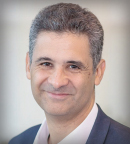The European Society For Medical Oncology (ESMO) launched its annual congress, held September 9–13, 2022, just as this issue of The ASCO Post was going to press. Watch upcoming issues for comprehensive coverage of the live congress, following 2 years of virtual meetings and remote presentations due to the COVID-19 pandemic. Visit ASCOPost.com now for news posted online and interviews filmed live with presenters at the Paris Expo Porte de Versailles. Sessions will also be streamed live for registered participants.

Solange Peters, MD, PhD
Solange Peters, MD, PhD, 2021–2023 ESMO President, of the Centre Hospitalier Universitaire Vaudois, Oncology Department, in Lausanne, Switzerland, and conference organizers announced more than 1,900 abstracts were being presented plus an additional 76 late-breaking abstracts (LBAs).
The following briefs are among the highlights to watch for. Comprehensive findings of studies will be available online soon and published in future issues of The ASCO Post.
Genitourinary Cancers
Karim Fizazi, MD, of the Institut Gustave Roussy and the University of Paris–Saclay, Villejuif, France, is the recipient of the 2022 ESMO Award for pioneering research in genitourinary (GU) oncology. The Award was established in 1985 to recognize an ESMO member who has made an outstanding contribution to the development of medical oncology by promoting it as a specialty within the European and/or international community. In an interview with the ESMO Daily Reporter, Dr. Fizazi discussed the future of caring for patients with genitourinary cancers, sharing his thoughts on treatment algorithms for prostate and testicular cancers in particular.

Karim Fizazi, MD
In the metastatic castration-sensitive prostate cancer setting, Dr. Fizazi spoke about treatment strategies over the past decade using combination regimens of two or three agents. He cautioned that an unmet need still exists and that a detailed study is required to determine the best treatment strategy for subpopulations of patients, including those with oligometastatic disease, other vulnerable patients such as those in their 80s and 90s, and patients with good or poor responses after several months of systemic therapy. Dr. Fizazi and colleagues used this as the objective of their PEACE-6 platform of randomized trials (ClinicalTrials.gov identifier NCT04916613), which is currently recruiting patients.
At the ESMO Congress, Dr. Fizazi presented abstract 1364MO on the novel nonsteroidal, selective inhibitor of the CYP11A1 enzyme, which suppresses the synthesis of all steroid hormones and their precursors. In a discussion about trends on the horizon for GU malignancies, Dr. Fizazi remarked on the shift toward early treatment of GU cancer, the prevention of disease relapse, and the treatment of disease based on tumor biology opposed to tumor site.
Additional Highlights of ESMO 2022
Watch for reports on the following oral abstracts and more, coming soon in The ASCO Post:
LBA1: Mechanism of action and an actionable inflammatory axis for air pollution–induced non–small cell lung cancer: Towards molecular cancer prevention. Swanton et al, Francis Crick Institute, London
LBA2: DeFi: A phase III, randomized controlled trial of nirogacestat versus placebo for progressing desmoid tumors. Kasper et al, Universitaetsklinikum Mannheim, Germany
LBA3: Treatment with tumor-infiltrating lymphocytes versus ipilimumab for advanced melanoma: Results from a multicenter, randomized phase III trial. Haanen et al, Netherlands Cancer Institute, Amsterdam
LBA4: Adjuvant nivolumab plus ipilimumab vs placebo for localized renal cell carcinoma at high risk of relapse after nephrectomy: Results from the randomized, phase III CheckMate 914 trial. Motzer et al, Memorial Sloan Kettering Cancer Center, New York
LBA5: Primary results of the phase III KEYNOTE-412 study: Pembrolizumab with chemoradiation therapy (CRT) vs placebo plus CRT for locally advanced head and neck squamous cell carcinoma. Machiels et al, Cliniques Universitaires Saint-Luc and Institut de Recherche Clinique et Experimentale, Woluwe-Saint-Lambert, Belgium
Abstract 903O: A prospective study of a multi-cancer early detection blood test. Schrag et al, Memorial Sloan Kettering Cancer Center, New York
LBA8: Phase III study of cabozantinib in combination with nivolumab and ipilimumab in previously untreated advanced renal cell carcinoma of IMDC intermediate or poor risk (COSMIC-313). Choueiri et al, Dana-Farber Cancer Institute and Harvard Medical School, Boston
LBA9: Duration of androgen-deprivation therapy with postoperative radiotherapy for prostate cancer: First results of the RADICALS-HD trial (ISRCTN40814031). Parker et al, The University of Manchester, Great Britain
LBA10: Sotorasib versus docetaxel for previously treated non–small cell lung cancer with KRAS G12C mutation: CodeBreaK 200 phase III study. Johnson et al, Sarah Cannon Research Institute at Tennessee Oncology, Nashville.
Visit ASCOPost.com now for more news from ESMO 2022.

